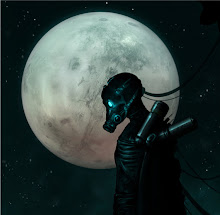
Torture, hunger, mobile sterilisation units ... the brutal reality of Tibet 2008
By CLAUDIA JOSEPH - 29th March 2008
British filmmakers have emerged from three months undercover in Tibet to release a terrifying portrayal of Chinese repression, including shootings, torture and the brutal sterilisation of women left maimed by crude operations.
Their film, to be shown tomorrow night as part of Channel 4's Dispatches series, was made before the recent outbreak of anti-Chinese rioting in the Tibetan capital, Lhasa.
But with hundreds of jailed Tibetan protesters now in fear for their lives, the harrowing footage will add to the storm of condemnation gathering ahead of the Beijing Olympics this year.
The documentary's investigation began with the notorious 2006 shootings on the Nangpa La pass, when unarmed Tibetans trying to leave the country were gunned down by Chinese border guards.
Two Tibetans were killed and 32 detained, interrogated and then sent to a labour camp 150 miles from Lhasa.
The experiences of one of those held, Jamyang Samten, now 16, gives a clue to the fate of Tibetan protesters now in the hands of the Chinese police.
He told the programme makers he was given electric shocks with a cattle prod, chained to a wall and hit in the stomach by a guard wearing a metal glove.
If he made a minor mistake in his interrogation, he would be beaten with a chain.
"The way the Chinese tortured was terrifying," he said.
"They beat us using their full strength. Sometimes they forced us to take off our clothes. We were locked up in a room with our arms and legs handcuffed and they beat us. The chain injured the surface but not the inside of the body.
"If they hit us with the electric baton, our entire body trembled and gradually we were unable to speak."
Jamyang was eventually released and finally made it over the border to Kathmandu in Nepal after paying a guide the equivalent of £210.
Tibetan women are also forcibly prevented from having children, despite supposedly being exempt from China's strict birth-control laws, the film's director Jezza Neumann discovered.
Measures include monitoring menstrual cycles, forced abortions and sterilisation if women cannot afford a fine for having a second child.
One woman, a married farmer, described her agony at a forced sterilisation operation without anaesthetic.
She could not afford the fine, equivalent to £70, and was one of six in her village who went through the ordeal.
"I was forcibly taken away against my will. I was feeling sick and giddy and couldn't look up," she said.
"Apparently they cut the fallopian tubes and stitched them up. It was agonisingly painful. They didn't use anaesthetic. They just smeared something on my stomach and carried out the sterilisation.
"Apart from aspirin for the pain, there were no other drugs. I was so frightened, I can't even remember how I felt. Some people were even physically damaged by the operation. They have limps and have to drag their hips."
Unconfirmed reports also suggest mobile sterilisation units are inserting a new type of contraceptive coil into village women that cannot be removed by them.
Every year, some 3,000 Tibetans brave death to flee across the Himalayas and into exile in Nepal.
The land they leave behind is saturated with secret police creating a climate of terror and mistrust – a land where merely protesting will invite arrest and severe punishment, found Mr Neumann.
The director spent his time undercover accompanied by a Tibetan refugee, Tash Despa, who now lives in London.
"There are spies everywhere," said Mr Neumann. "There are the uniformed police and army, the secret police in their suits and dark glasses and then a spy network of Chinese and Tibetans. It's like the Stasi in East Germany.
"It's got to the point where brothers don't trust their sisters and mothers don't trust their children."
According to the Tibetan Government in exile, cases of arbitrary arrest and detention have increased threefold in a year.
But Mr Neumann – nominated for five Bafta awards for China's Stolen Children, a film investigating the black market in babies created by the notorious "one child policy" – said the whole Tibetan culture was under attack.
New dams have flooded entire villages, driving farmers off ancestral lands. Monks are vulnerable because of the Dalai Lama's role as a religious and political leader in exile.
And nomads have been forcibly resettled into concrete camps without schools, clinics or bus services. Their livestock has been confiscated.
"Life here is incredibly hard," said a woman in one camp.
"People are suffering from hunger and hardship. They have no jobs and they have no land. The only way they can fill their empty stomachs is by stealing. We live in terror.
"We don't even have basic human rights, not even freedom of speech. Everybody is so depressed. They look awful. Their faces have become pale. Their eyes are sunken. Everyone is afraid of speaking the truth."
Mr Neumann is particularly anxious about the plight of the recent protesters.
"I haven't met anyone who had been arrested who wasn't tortured," he said.
"God only knows what will happen to them if they burnt down a Chinese shop or threw a rock at an official's car or threw a shoe at a policeman."
The Solution: Boycott the Olympics - Boycott Chinese products
Source: UnMadeInChina

















No comments:
Post a Comment